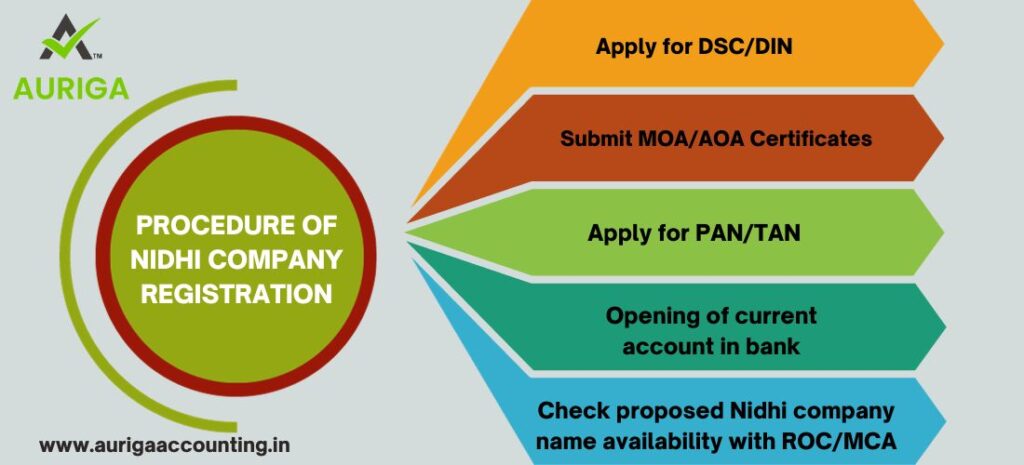
COMPLIANCES REQUIREMENT AND LOANS UNDER NIDHI COMPANY?
Introduction
ToggleYOU NEED TO KNOW COMPLIANCES REQUIREMENT AND LOANS UNDER NIDHI COMPANY?
Related to compliances requirement and loans under nidhi company information given below:
Incorporation: Formed as public companies with a minimum of seven members.
Minimum Capital Requirement: Require a minimum paid-up equity share capital of Rs. 10 lakhs.
Membership: Limited to individuals, and each member must hold at least 10 equity shares.
Deposits: Can accept deposits only from their members, with limits on the maximum amount.
Loan Limit: Loans granted to members should not exceed two times the amount of deposits held by the member.
Compliance Requirements for Nidhi Companies:
To ensure the financial stability and security of the members and the public interest, Nidhi Companies in India must adhere to several compliance requirements. These requirements are outlined in the Nidhi Rules, 2014, and the Companies Act, 2013. Let’s delve into the key compliance requirements:
Minimum Members:
- A Nidhi Company must have at least 200 members within a year of its incorporation.
2. Minimum Capital Requirement:
- A Nidhi Company should have a minimum paid-up equity share capital of Rs. 5 lakhs. This capital requirement is crucial for maintaining the financial stability and credibility of the Nidhi.
3. No Preference Shares:
- Nidhi Companies are prohibited from issuing preference shares. All shares issued must be equity shares.
4. Object Clause:
- The primary objective of a Nidhi Company should be promoting thrift and savings among its members, receiving deposits from them, and lending to them for their mutual benefit. The Memorandum of Association (MoA) should clearly state this objective.
5. Directors and Management:
- A Nidhi Company must have a minimum of three directors, with at least two-thirds of them being individuals. Each director should have a Director Identification Number (DIN).
6. Board Meetings:
- The company is required to hold a minimum of four board meetings in a year, with an interval of no more than 120 days between two consecutive meetings. These meetings are vital for decision-making and compliance with regulatory requirements.
7. Appointment of CEO:
- A Nidhi Company is required to appoint a Chief Executive Officer (CEO), who should be one of the directors. The CEO plays a significant role in the day-to-day management and decision-making of the Nidhi.
8. Company Name Reservation:
- The name of the Nidhi Company should be unique and appropriate. It should not be identical or similar to an existing company or trademark. The availability of the name can be checked with the Ministry of Corporate Affairs (MCA).
9. Digital Signature Certificates (DSCs):
- DSCs are required for all proposed directors and the CEO. These are essential for filing online applications with the Registrar of Companies (RoC).
10. Director Identification Number (DIN):
- Each director of the company must have a DIN. The application for DIN should be filed through the MCA portal.
Loans under Nidhi Company:
Within one district, a Nidhi Company can open maximum up to three branches only. If a Nidhi company wishes to open more than three branches within a district without prior approval of Regional Director.
Loans under Nidhi Company:
Nidhi Companies can provide loans to their members for various purposes, including personal, business, or educational needs. These loans are typically provided against gold, jewelry, or immovable property. Here are some key aspects of loans under Nidhi Companies:
Eligibility:
- Loans are provided to the members of the Nidhi Company who have been with the company for a certain period and have a good repayment history. Eligibility criteria can vary from one Nidhi Company to another.
Interest Rates:
- The interest rates charged on loans should not exceed 7.5% above the highest rate offered on deposits by the Nidhi Company. This regulation ensures that the interest rates are fair and transparent.
Security:
- Nidhi Companies typically provide secured loans. The borrower needs to provide collateral, such as gold, jewelry, or property, to secure the loan. The valuation of the collateral is done by an approved valuer.
Loan Amount:
- The maximum loan amount that can be provided is typically determined by the value of the collateral provided by the borrower. Nidhi Companies usually provide loans up to a certain percentage of the collateral’s value.
Repayment Terms:
- Repayment terms are determined by mutual agreement between the Nidhi Company and the borrower. The repayment period and installment amounts are usually flexible, depending on the financial capacity of the borrower.
Loan Application Process:
- Members of the Nidhi Company can apply for loans by filling out a loan application form. The application is then processed, and if approved, the loan is disbursed to the member.
Default and Recovery:
- In case of default, the Nidhi Company has the right to auction the collateral provided by the borrower to recover the outstanding loan amount. However, this should be done in compliance with the law and the terms and conditions of the loan agreement.
Transparency and Documentation:
- Nidhi Companies are required to maintain transparency in their loan operations. All loan transactions should be properly documented, and the terms and conditions of the loans should be clearly communicated to the borrowers.
Asset Quality:
- Nidhi Companies need to maintain proper asset quality and classification of their loan portfolio, as per RBI guidelines. This involves classifying loans into standard, sub-standard, doubtful, or loss assets based on their performance and repayment status.
RBI Regulations:
- Nidhi Companies must ensure compliance with any guidelines or regulations issued by the Reserve Bank of India (RBI) regarding loans and asset quality. While Nidhi Companies are not directly regulated by the RBI, they must adhere to any relevant directives that may apply to them.
What is the criteria for Nidhi Company loan
- Maximum finance against gold shall be up to 80%.
- The time period for repayment shall be 12 months.
- The rate of Interest shall not exceed 7.5%+ maximum rate of Interest on a gold loan.
- The maximum loan to be advanced is Rs. 2 Lakh.
How can I start a Nidhi company

PROCEDURE OF NIDHI COMPANY REGISTRATION
- Apply for DSC/DIN
- Check proposed Nidhi company name availability with ROC/MCA
- Submit MOA/AOA Certificates
- Apply for PAN/TAN
- Opening of current account in bank
- Get your NIDHI company registration after successful verification of documents.
Start a Nidhi company In India:
Nidhi company registration in India is regulate by the rule & regulations specified under section 406 of companies act, 2013. The word “Nidhi” is used in reference with a treasure/a fund i.e. the company so incorporated have the primary objective of inculcating a habit of savings amongst its members.
Some of the interesting features related with NIDHI company registration are:
Borrowing & Lending: A Nidhi Company cannot lend & borrow from outside its member community.
“Nidhi ltd.”: “Nidhi limited” must be added to name of the company.
Share capital: Minimum equity share capital of INR 5 lakh is required Nidhi Company. You cannot issue preference shares once registered as Nidhi company.
No. of members: Atleast 7 members must be there to start a Nidhi company. Out of which 3 must be the full time directors of the company.
Conclusion of nidhi company
Nidhi Companies offer an essential financial service by promoting savings and providing loans to their members, primarily in small and medium-income segments. However, to maintain the financial stability and trust of their members and the public, Nidhi Companies must adhere to a specific set of compliance requirements and transparent lending practices.
Compliance with the Nidhi Rules, 2014, and the Companies Act, 2013, is essential to ensure that Nidhi Companies operate within the legal framework. This includes having the required minimum number of members, maintaining a minimum capital requirement, adhering to lending and interest rate regulations, and reporting financial information to the Registrar of Companies (RoC). The compliance requirements are designed to safeguard the interests of the members and protect the financial stability of the Nidhi Companies.
how auriga accounting help you to define compliances and loans
Auriga Accounting is a financial services firm that can assist you in defining and managing the compliance requirements and loan operations of a Nidhi Company. Here’s how Auriga Accounting can help in these areas:
Defining Compliances:
Legal Expertise: Auriga Accounting has a team of professionals with expertise in regulatory compliance and legal matters. They can help you understand and define the compliance requirements applicable to Nidhi Companies, as specified in the Nidhi Rules, 2014, and the Companies Act, 2013.
Compliance Checklist: They can provide you with a comprehensive compliance checklist tailored to your Nidhi Company’s specific needs. This checklist will outline the necessary steps and requirements to ensure that your company complies with all legal and regulatory mandates.
Document Preparation: Auriga can assist in preparing the necessary legal documents, including the Memorandum of Association (MoA), Articles of Association (AoA), and other required documents, ensuring that they are in compliance with the Nidhi Rules.
Regulatory Updates: Auriga Accounting stays updated with the latest regulatory changes. They can inform you about any new rules or requirements that may affect Nidhi Companies and help you adapt to these changes.
Board Meeting Facilitation: Auriga can help you organize and facilitate the mandatory board meetings, ensuring that they are conducted in compliance with the regulatory schedule and requirements.
Audit and Financial Compliance: They can assist in setting up proper accounting and financial reporting systems to ensure that your company complies with the annual audit and reporting requirements.
Ongoing Compliance Support: Auriga can provide ongoing support for compliance matters, including guidance on maintaining statutory records, filing annual returns, and keeping your company’s operations in line with the legal framework.
Managing Loans:
Loan Policy Development: Auriga Accounting can assist in developing a clear and comprehensive loan policy for your Nidhi Company. This policy will define the eligibility criteria, interest rates, collateral requirements, and repayment terms for loans.
Documentation and Transparency: They can help establish transparent loan documentation processes, ensuring that all terms and conditions are clearly communicated to borrowers. This documentation is essential for legal protection and compliance.
Asset Quality Monitoring: Auriga can assist in implementing a system to monitor the asset quality of your loan portfolio, classifying loans into standard, sub-standard, doubtful, or loss assets based on their performance and repayment status.
Loan Valuation and Collateral: They can guide you in establishing processes for the proper valuation of collateral and maintaining records related to the collateral provided by borrowers.
Default Management: Auriga can provide expertise in managing loan defaults, including the legal and regulatory procedures for asset recovery, such as auctioning collateral while complying with the law.
RBI Compliance: While Nidhi Companies are not directly regulated by the Reserve Bank of India (RBI), Auriga can ensure that your company complies with any relevant RBI guidelines or directives that may apply to loans and asset quality.
Training and Education: They can provide training and education for your team on the compliant and ethical handling of loans, asset quality management, and the importance of regulatory adherence.
Reporting and Documentation: Auriga Accounting can help you maintain accurate records and reports related to loan operations, ensuring that you have the necessary documentation for compliance and reporting.
Audit Support: They can provide support during the annual audit process, helping you prepare the required financial statements and other documentation related to loan operations.












